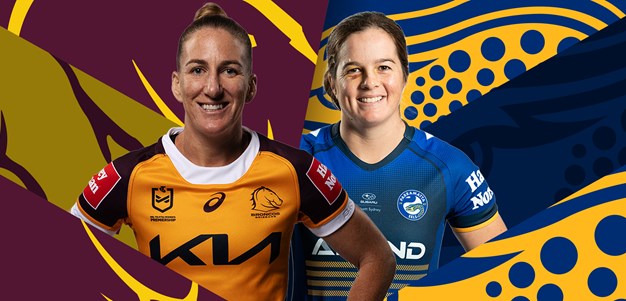
The rugby league world said goodbye to several well-known players, coaches, administrators and people associated with the sport in 2020.
Brian James
1943-January 10, 2020
A high-quality winger for South Sydney who represented Australia at the 1968 World Cup before retiring at the age of 26.
The son of former Cootamundra Maher Cup prop Jack "Swifty" James, he came to rugby league via rugby union after attending Newington College and playing a season of first grade with the St George rugby club.
He switched to rugby league with St George in 1961 where he played centre and wing but top-grade opportunities were scarce in the Dragons’ star-studded backline, so he made the decision to transfer to South Sydney in 1966.
He was quickly vindicated, playing more first-grade games in his first season with Souths (18) then he did in four years at St George (16). A winger of above average pace (he pursued professional sprinting in the off-season), James earned his first representative jersey with City Seconds in 1967 before making City Firsts the following year.
He progressed to NSW selection and then was named in Australia’s 19-man squad for the World Cup. Although overlooked for the opening games he was given an opportunity in the pool match against France.
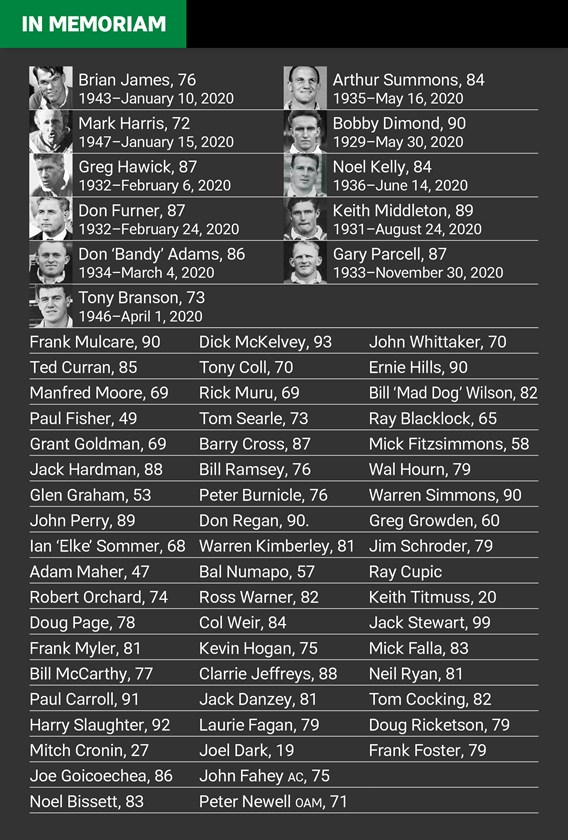
Australia won easily but James saw little of the ball and the chance to play his way into the top 13 for the final was lost. James played in four consecutive lower-grade grand finals with St George (winning all but one) before appearing in three first-grade deciders with the Rabbitohs.
He shared in Souths’ triumphs over Canterbury in 1967 and Manly in 1968 but tasted defeat against Balmain in 1969. James retired soon after to pursue a career in transport and logistics.
He died on January 10 following an accident on his property at Capertee in central-western NSW.
Mark Harris
1947-January 15, 2020
Mark Harris was a blockbusting centre who made his mark with Eastern Suburbs in the early 1970s and in 1974 helped secure the club its first premiership title in 29 years.
Harris made a meteoric rise with the Roosters after being signed sight unseen by officials, who had heard of his exploits with the Kone Tigers in Port Moresby.
Harris was a first-grader after only a handful of games in the lower grades at Easts and by the end of his first season was chosen in Australia’s 1970 World Cup squad. A cousin of former Test prop Dud Beattie, Harris played on the wing in the brutal Cup final against Great Britain, won 12-7 by Australia at Headingley and figured in a second World Cup campaign in France two years later.
His career took a sudden detour in 1973 after his kicking abilities were identified by an American radio broadcaster who had undertaken a worldwide search for a kicker for the Boston Patriots NFL team.
Harris tried out with the Patriots and the Philadelphia Eagles before landing a contract with the Montreal Alouettes in the Canadian Football League. Harris struggled to learn the nuances of the new code and was frustrated that his input was limited to taking kick-offs.
Harris scores as Coote and Beetson split the Bulldogs
He returned to Easts in 1974 and resumed his centre partnership with former Wallaby John Brass. Under Jack Gibson’s direction, Harris recaptured his rampaging attacking form and scored a crucial grand final try against Canterbury.
A fractured leg in the preliminary final against Manly cost Harris the chance of back-to-back titles with Easts a year later but he continued to flourish at representative level and helped Australia to another World Cup title in 1977.
After playing 195 first-grade games in a decade with Easts, Harris crossed the bridge to join North Sydney for the final two seasons of his career in 1980 and 1981. He died in Sydney on January 15 after a long battle with cancer.
Greg Hawick
1932-February 6, 2020
Even before Greg Hawick played his first Test for Australia, he was described by former Test captain Len Smith as “the most competently versatile footballer the rugby league code has had since Jim Craig in the 1920s.”
It was praise that the young South Sydney player lived up to over the next decade, featuring in four different positions in a 10-Test career for his country. Hawick displayed versatility from his earliest days as a footballer, alternating between lock and five-eighth at Gardener’s Road Junior Technical School and even filling in at centre and wing when required.
He played primarily five-eighth for the Rabbitohs and occupied that role when Souths ended an 18-year premiership drought in 1950. But in his first three Tests for Australia he played five-eighth, lock and halfback to effectively cement his reputation as one of the game’s great all-rounders.
He added a second premiership title with Souths in 1954 but injury cost him the chance of winning three more when he missed deciders in 1951 (broken jaw), 1953 (shoulder) and 1955 (knee). Hawick headed bush in 1957, joining Wagga Kangaroos and lifting the club from the doldrums to win back-to-back titles in 1962-63.
It was in 1957 that Hawick etched his name in the record books by booting 15 goals for NSW in a 69-5 demolition of Queensland. Hawick returned to Sydney in 1959 for two seasons with Norths but afterwards settled into country life.
His only foray back into the big smoke was an unedifying stint as North Sydney coach in 1985.
Named in South Sydney’s all-time Dream Team in 2004 (on the bench) and in the NRL’s Team of the 1950s in 2007 (at five-eighth), he died in Wagga Wagga on February 6, aged 87.
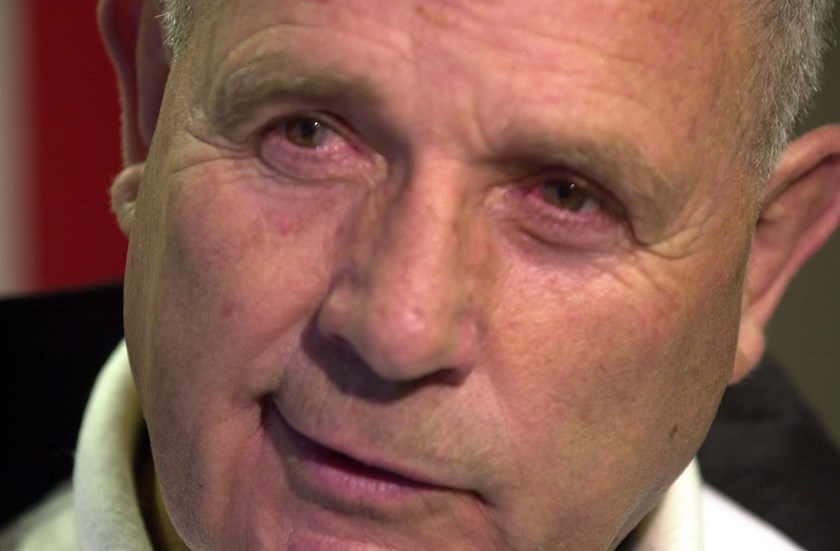
Don Furner
1932-February 24, 2020
Don Furner was best known as the foundation coach of Canberra but his years with the Raiders were only part of the story of a remarkable lifelong contribution to the game.
Furner’s career began as a player in the Balmain juniors in the 1940s and culminated in selection for the Kangaroos in 1956 and a Test jersey against Great Britain.
His journey included stints at Toowoomba, where he shared in five consecutive Bulimba Cup titles in the annual triangular tournament with Brisbane and Ipswich, at Mackay and Mitchell in rural Queensland, along with Tumbarumba, Junee and Queanbeyan in southern NSW.
Furner quit playing in 1966 but continued to coach Queanbeyan United, steering the club to five grand finals and three premierships. He took on the Eastern Suburbs coaching job in 1970 and guided a team that included Arthur Beetson and Ron Coote to the grand final in 1972.
Returning to Queanbeyan, Furner coached representative teams including Monaro and Country Firsts and Seconds. The Raiders endured a tough initiation into the NSWRL competition but Furner built steadily, eventually enticing high calibre players Mal Meninga, Gary Belcher, Steve Walters and Peter Jackson to the club and, in partnership with Wayne Bennett, led the Raiders to their first grand final in 1987.
Furner coached the Australian team on a second undefeated Kangaroo tour in 1986 and plotted Australia’s defeat of New Zealand in the 1988 World Cup final.
He became Australia’s chairman of selectors for a decade and coached Fiji at the 2000 World Cup. Furner’s legacy at the Raiders was carried on by his sons David (200 first grade games) and Don jnr (CEO since 2007). Don snr passed away in Canberra on February 24, aged 87.
Don 'Bandy' Adams
1934-March 4, 2020
A stockily built dairy farmer from Nelson Plains in the Hunter Valley, Adams was the star of Australia’s 1956 home series win over New Zealand before he winged his way to England with the Kangaroos.
His chance at Test level came in the lead-up to the first Test against the Kiwis, when Newcastle’s Brian Carlson injured a leg at training. Adams emerged the hero of a knife’s edge contest at the Sydney Cricket Ground, scoring two tries in Australia’s 12-9 win, including a long-distance match-winner with a minute to play.
After seeing little of the ball in a forwards-dominated second Test in Brisbane, won 8-2 by Australia, Adams played another blinder in the third, crossing for a hat-trick of tries in a 31-14 cakewalk and guaranteeing his place among the Kangaroo tourists later in the year.
Adams hit the ground running in England, scoring the first try of the tour, and four for the match against Liverpool. But his progress was slowed by a knee to a kidney at Barrow and despite finishing with 11 tries from 15 games, he played only the one Test against Great Britain and one against France.
And that’s where his big-time representative career ended. Adams came to Sydney with Country teams in 1957 and 1958 but after that he was content to stay in the Hunter where he turned from farming to work as a telephone linesman.
Adams played 11 seasons with Maitland, before stints as player coach at Gloucester, Scone and Muswellbrook. His eldest son, David, later played first grade with Manly and Balmain. Don died at Scone on March 4 at the age of 86.
Tony Branson
1946-April 1, 2020
Tony Branson took the ride of a lifetime in 1967, progressing from first grade at the Nowra Warriors all the way to a Kangaroo tour, where he scored a glorious try to set up Australia’s Ashes victory at Swinton and then played all three Tests against the French.
The 20-year-old pivot was virtually unknown to Sydney crowds at the start of that season but after representing Group 7 and Southern Division, he played for Country Firsts and then NSW before beating no less a player than Bob Fulton for a place in the Kangaroo squad.
He signed on with St George after the tour. There he came face-to-face with another high-profile five-eighth, Phil Hawthorne, recruited from Wallaby ranks the same year. Branson admitted in a 2010 interview that he was blindsided by Hawthorne’s signing and claimed he had no idea that he had signed with St George as a centre.
Branson didn’t have the speed for the position and although he tried hard to make a success of the role, his confidence and form suffered and he was eventually dumped to reserve grade. Branson stayed with the Dragons until 1973, playing 101 top grade games and appearing in the club’s 1971 grand final loss to South Sydney.
He signed with Wollongong before returning to Nowra in 1977 and finally hanging up his boots. He died on April 1, aged 73.

Arthur Summons
1935-May 16, 2020
Arthur Summons was never one to dwell on the disappointments that could have dimmed the great moments of a career of outstanding endeavour in two rugby codes.
Well before he became the Western Suburbs and Australian captain and then one of the iconic figures adorning the game’s premiership trophy, Summons enjoyed resounding success in rugby union. He played 10 Tests for the Wallabies, debuting against the Springboks in 1956 before touring the British Isles in 1957-58.
He made the decision to switch to league in 1960 and within two seasons he had become a dual international, playing the first of nine Test matches in his new code.
Summons was appointed Test captain for the third Test of 1962, beginning an undefeated run of five Tests as skipper.
In 1963 he was selected as captain-coach of the Kangaroos touring team and even though a knee injury kept him out of the three Ashes Tests, he remained at the helm of the first all-Australian team to win the Ashes on British soil.
He played in three grand finals in five seasons with Western Suburbs, all of them ending in heartache at the hands of St George, the 1963 defeat hurt the most.
It was a controversial finish and involved a hint of scandal but for Summons there was a silver lining. The photograph snapped by Sun-Herald sharpshooter John O’Gready just after the full-time siren proved to be a life-changer.
His muddy embrace with Dragons skipper Norm Provan became rugby league’s most famous image, the basis for the game’s premiership trophies since 1982 and led to a lifelong friendship with his former rival that was only broken by Summons’ death on May 16.
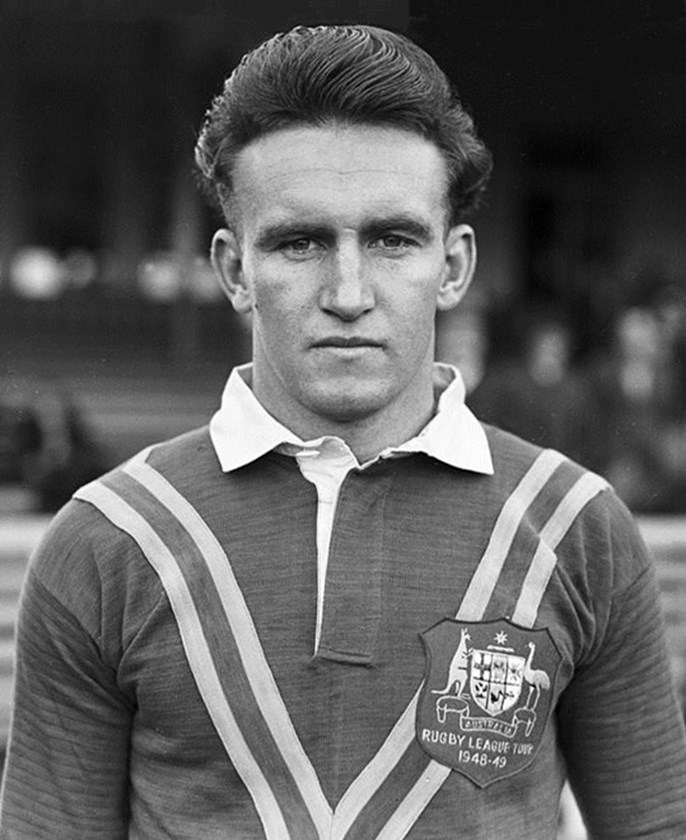
Bobby Dimond
1929-May 30, 2020
The passing of Bobby Dimond in a Gold Coast retirement home in May marked the end of an era. Dimond was the last surviving member of the 1948-49 Kangaroos, the first team to tour Great Britain and France after World War II.
Dimond was the baby of the tour, becoming only the second Kangaroo (after Charles "Chook" Fraser in 1911) to celebrate his 19th birthday while in England. Dimond failed to make the Test team but gained invaluable experience in 15 tour games, playing mostly as a winger and occasionally at centre.
He came into first grade at Dapto at the age of 16 and played his first senior representative football early in 1948, turning out for Country Firsts and NSW before sailing for England aboard the Maloja with his Kangaroo teammates later in the year.
He had begun to make his mark in Sydney football with Western Suburbs when he suffered fractures and a severe concussion in a motorcycle accident which ruled him out of the game for two years.
He attempted a comeback with St George in 1954 but fractured his wrist in a trial and after making a brief comeback at Kempsey in 1955, Dimond was selected for Country Seconds but was forced to withdraw with injury.
Dimond’s younger brother Peter toured with the Kangaroos in 1963-64. Bobby was 90 when he died on May 30.
Noel Kelly
1936-June 14, 2020
"Ned" was as rough and rugged as they come. Raised in rural Queensland, Kelly took to rugby league like he was made for it and stood his ground against the toughest opponents that played the game in his era.
He cut his teeth in the ultra-tough Bulimba Cup competition (Ipswich-Brisbane-Toowoomba) in the late 1950s, wore his first Australian jersey in 1959 and became a fixture in the Test line-up for a decade. He became the first front-rower to make three Kangaroo tours (1959-60, 1963-64 and 1967-68) and played 72 games for his country, including 28 Tests.
In club football, Kelly ensured that few teams enjoyed playing Western Suburbs as he dished out his own brand of punishment for nine seasons. He played 111 games of premiership football for Wests, a figure undoubtedly diminished by regular suspensions.
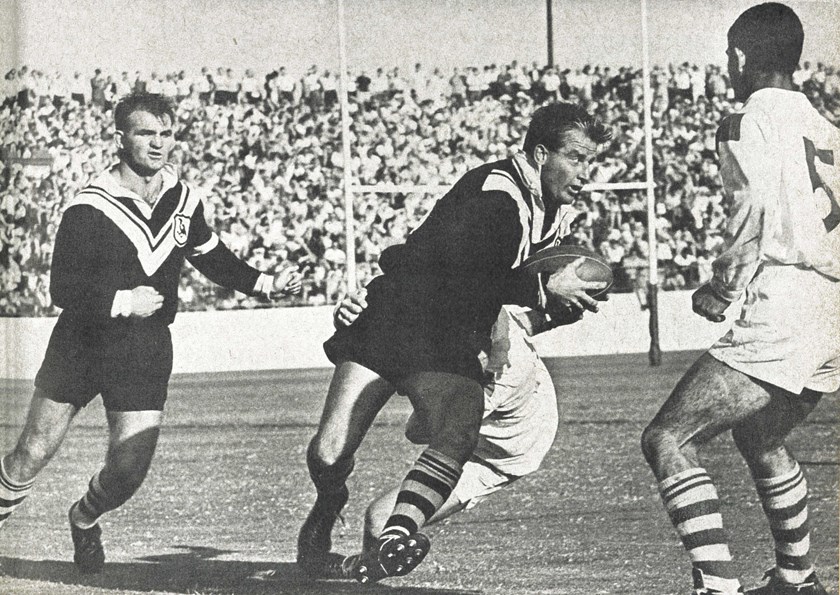
His top-level career wound up in 1969 before a brief stint as captain-coach at Wollongong. Kelly became non-playing coach of North Sydney from 1973-76 but apart from steering the Bears to a mid-week final, success proved elusive.
He remained heavily involved in the game, his character shining through as a panelist on Rex Mossop’s Controversy Corner and he later rendered outstanding service to the Men of League organisation.
In 2008 Kelly was bestowed the ultimate honour when named in the Australian Rugby League Team of the Century, at hooker. He passed away on June 14 following a brief illness, aged 84.
Keith Middleton
1931-August 24, 2020
Keith Middleton was still a teenager when he achieved his greatest moment in rugby league, throwing the final pass for the try that won the Ashes for Australia after a 30-year drought.
On any other day it would have been applauded as a slick, if regulation, backline movement but with the SCG a quagmire, the Ashes up for grabs and the match delicately balanced at 2-all, the pressure was intense.
From an Australian scrum win, Keith Holman, Frank Stanmore and Doug McRitchie played their part before Middleton sent winger Ron Roberts galloping away for the match-winning try.
Middleton emerged from the NSW far south coast town of Bermagui, playing his early football as a half and five-eighth before shifting to centre when he joined North Sydney as a 17-year-old in 1948.
He was selected for Australia for the first Test in 1950 after only one representative game for City Seconds. Middleton’s performances in all three Tests caught the eye of former Test captain Len Smith, who was convinced that the young centre was poised for a long representative career.
Apart from one further appearance for NSW, and a couple of games for City, he played no further rep football. By 1955 he announced his retirement to pursue a career as a building executive.
He made a brief comeback with South Sydney in 1956 before retiring for good at 25. He died at Miranda on August 24, aged 89.
Gary Parcell
1933-November 30, 2020
A farmer from Harrisville, a small rural hamlet 25km south of Ipswich, Gary Parcell gained fame as a rugged second-rower or prop in a 10-year career in which he represented Ipswich, Queensland and Australia.
He won a place in Ipswich Brothers’ first-grade side as an 18-year-old in 1952. He played his first representative game the following season against the American All Stars and the first of 34 Bulimba Cup matches for Ipswich the same year.
By 1956 he emulated his father Perce Parcell when he was chosen for Queensland. Perce had represented the Maroons in two interstate games in 1924-25. Gary went on to surpass his father’s tally, appearing 12 times in interstate matches and in three games against international opposition.
Parcell achieved a breakthrough year in 1959 when he helped the Maroons to a rare series victory over NSW (it turned out to be their last until the 1982 State of Origin series) and from there was chosen to tour with the Kangaroos.
He made his Test debut at Swinton in a 22-14 victory and went on to play in four of the six Tests on tour. He played his first Test on Australian soil against France in 1960, forming a famous all-Ipswich front row, along with Dud Beattie and Noel Kelly. The trio were part of Australia’s World Cup squad in England later the same year. Parcell played his final Test in 1962.
His son Steve carried on the family tradition, representing Queensland Residents on a tour of France in 1989, while grandson Matt played NRL for Brisbane and Manly before forging a successful career in the English Super League. Gary Parcell died at Harrisville on November 30, aged 87.
Frank Mulcare
A fiery West Coast second-rower who played in four consecutive New Zealand Test wins over Australia at Brisbane, Sydney, Christchurch and Wellington in 1952-53.
He played 18 Tests (among 46 games) for the Kiwis from 1951 to 1956. Was one of four Kiwis attached to the injury-hit 1953 American All Stars touring team in New Zealand.
Mulcare retired at 26 the when NZRL refused him a clearance to play in Australia (where he met his wife on the 1952 tour). He became chief police prosecutor in Christchurch in the 1960s before farming in Northland until his death. Inducted in NZRL Legends of League in 2007. He died in Whangarei on January 5, aged 90.
Ted Curran
A second-rower for NSW country clubs Adelong, Temora and Thirroul in the 1950s before becoming long-term Country and NSW selector. Curran turned 18 the day he made his representative debut for Country Seconds in 1952 before representing Combined Riverina and Western Division against that year’s touring Kiwi side.
He shifted from Adelong to Temora in 1953 and represented Riverina against the American All Stars.
And in 1958 he moved to Thirroul, representing Southern Division against Great Britain (1958) and New Zealand (1959). He died on January 9, aged 85.
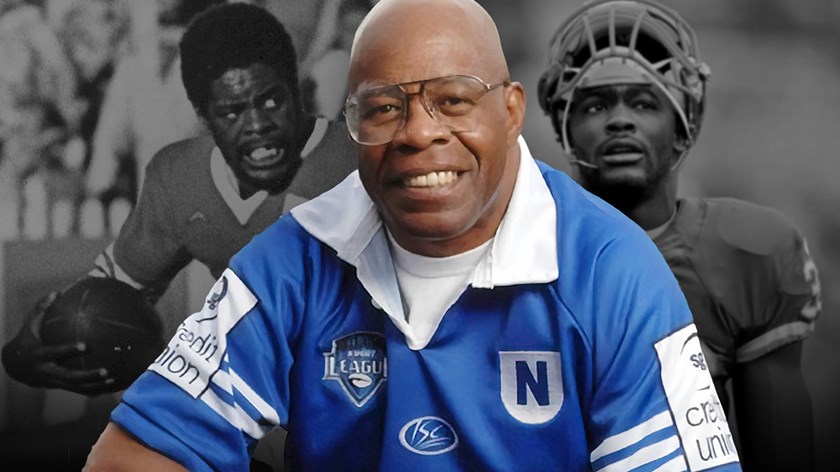
Manfred Moore
An American-born winger who played five first grade games for Newtown in 1977 but left an impression that lived on among supporters of the Jets and the wider league community. A member of the Super Bowl-winning Oakland Raiders outfit of 1977, Moore was enticed to Sydney by advertising guru and Jets supporter John Singleton.
The 26-year-old arrived amid great fanfare, scored a try with one of his first touches but afterwards struggled to adapt to the new code. Moore returned to the NFL with the Minnesota Vikings and after retiring became a church minister. He returned to Australia for a reunion in 2007. Moore died in California on January 11, aged, 69.
Paul Fisher
A utility player for Cronulla in nine first-grade games (1995-97) after moving from Brisbane to play under coach John Lang in 1994.
The Souths-Sunnybank junior was equally at home at fullback, halfback and hooker. He died after battling Motor Neurone Disease on January 13, aged 49.
Grant Goldman
A radio broadcaster and long-time ground announcer at Brookvale Oval, an unabashed Sea Eagles supporter, Goldman took on the ground announcer’s job in 1978 and was a fixture for most seasons until 2015. His parochial style occasionally earned the ire of officialdom, Goldman passed away on January 17, aged 69.
Jack Hardman
A winger for Balmain in the early 1950s, who played one first-grade game (against Western Suburbs) in 1953. He passed away on January 21, his 88th birthday.
Glen Graham
A winger who was a member of South Sydney’s premiership-winning under-23s squad in 1986. Nicknamed "Toots", he made his only appearance in first grade as a 19-year-old replacement player that season. He died of a heart attack on January 26, aged 53.
John Perry
A halfback for Eastern Suburbs, who took the opportunity to play first grade in 1952 when regular half Col Donohoe sailed for England with the Kangaroos. A member of Easts’ President’s Cup team of 1951, Perry played seven first-grade games (1952-53). He died at Lithgow on January 27, aged 89.
Ian 'Elke' Sommer
A second-rower for Valleys in their 26-0 victory over Souths in the 1979 Brisbane grand final. Sommer joined Valleys in 1975 as a winger but made a successful transition to the forwards under coach Henry Holloway in 1977.
Sommer played five seasons of first grade alongside Wally Lewis and Ross Strudwick and mentored future Test second-rower Bryan Niebling. He died suddenly on February 12, aged 68.
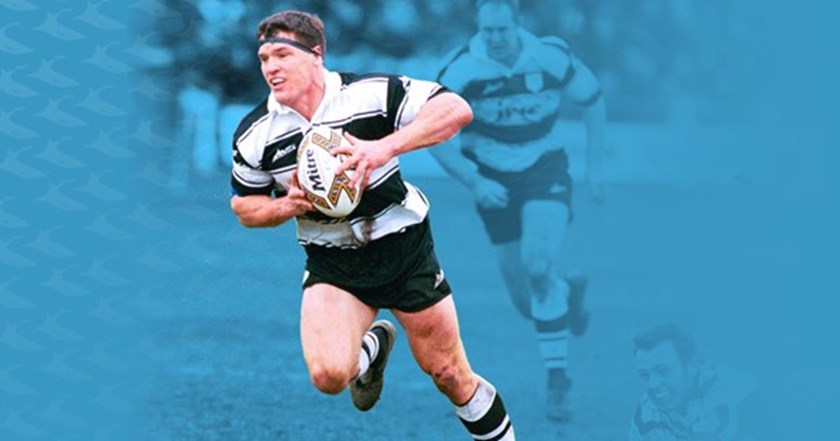
Adam Maher
A second-rower who played 43 games for Cronulla 1994-96 including six in first grade (all as a 21-year-old in 1994). He joined the Sharks from Brisbane Easts, along with teammates Paul Green, Geoff Bell and Andrew Neave, to play under coach John Lang before joining the Hunter Mariners in 1997.
Maher moved to the UK, playing initially with Rochdale Hornets (1998) and Gateshead (1999) before playing 92 Super League games in four seasons with Hull FC (2000-03). He died of Motor Neurone Disease on February 25, aged 47.
Robert Orchard
A rampaging Kiwis front-rower who later played in and for Queensland. He played 55 games for New Zealand, including 18 Tests, toured Britain and France in 1965 (aged 19) and 1971 and Australia in 1967 and 1972.
Orchard appeared in all seven Tests in 1971 when New Zealand completed a unique grand slam over Australia, Great Britain and France. He settled in Queensland in 1973 and represented the state in two games against NSW.
He played for Redcliffe in 1973 grand final loss to Valleys and also at Mt Isa, Mackay and Gympie and for Wynnum-Manly. The brother of fellow Kiwi Phillip Orchard, he died in Brisbane on March 10, aged 74.
Doug Page
A lock or second-rower in 29 first-grade games for Western Suburbs between 1964 and 1970. Page’s career was restricted by injury and limited by three years overseas in which he taught physical education at schools in Buenos Aires (1967) and England (1968-69).
He died in Lismore on March 24, aged 78.
Frank Myler
The last Great Britain captain to win the Ashes. A centre in 369 appearances for Widnes (1955-67), 144 games for St Helens (1967-71) and 50 games for Rochdale (1972-73); Myler played 24 Tests for Great Britain and toured Australia as a player in 1966, as captain in 1970 and coach in 1984.
He died on March 27 after a long illness, aged 81.
Bill McCarthy
A second-rower who played 13 first-grade games across three seasons for South Sydney and Newtown between 1962 and 1968. The older brother of South Sydney legend and Hall of Famer Bob McCarthy, Bill played juniors with Chelsea United. He died in Cairns after battling emphysema on July 27, aged 77.
Paul Carroll
A five-eighth for Eastern Suburbs, who played five first-grade games for the club in 1952. Carroll joined Easts after two seasons in first grade with Randwick rugby union club. He died on his 91st birthday on March 29.
Harry Slaughter
An instrumental figure in the establishment of Penrith junior club St Dominics (later known as Brothers) in 1968. Slaughter was a Panthers director from 1967-80 and was awarded life membership of the club in 1979. He died on April 14, aged 92.
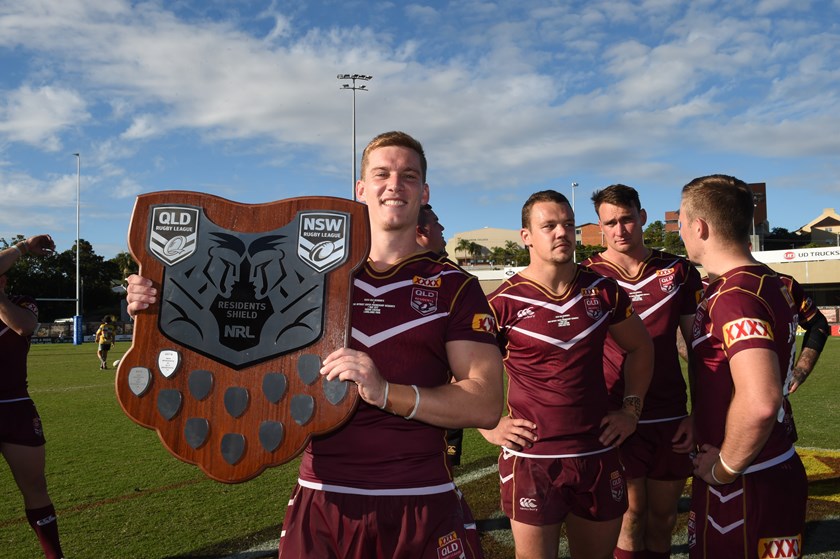
Mitch Cronin
A Wynnum-Manly hooker who captained the club to the grand final of Queensland’s Intrust Super Cup in 2019 and had spent time in the development systems of the Brisbane Broncos and Canberra Raiders.
The 27-year-old was found unresponsive in his swimming pool following a weights session at his home on April 17.
Joe Goicoechea
A prime mover in the formative years of the North Queensland Cowboys, and the principal figure in the redevelopment of Willows Paceway into a premiership-standard rugby league venue in 1995.
A former front-rower with Souths Townsville and a Foley Shield representative, Goicoechea sat on the Cowboys board from 1995-2000. He died on April 22, aged 86.
Noel Bissett
A long-serving referee and administrator in Canberra and surrounding regions. Involved in the game for more than 50 years, Bissett was the first Canberra-based referee to control a first-grade game in the NSWRL (1984) and was a pioneer of the video referee system.
He died on April 25, aged 83.
Dick McKelvey
A winger for Western Suburbs, who played 13 first-grade games in the years immediately following World War II. McKelvey debuted in first grade in 1946 but did not cement a position until 1949. He was the Magpies’ oldest living player until his death in May, aged 93.
Tony Coll
New Zealand’s most decorated forward of the 1970s, playing 30 Tests and 35 other matches for the Kiwis from 1972 to 1982. Coll was a powerful and fast second-rower who famously scored a try from 60 metres against Wales at Swansea in 1975.
He played in the World Cup of 1972 and World Series 1975 and 1977 (captain) and toured Australia and PNG in 1978 and 1982 and Great Britain and France in 1980. Coll played for West Coast province in 58 games (1971-82) and for the Greymouth Marist club (227 games). Coll died while mountain biking near Greymouth on May 14, aged 70.
Rick Muru
A long-serving Waikato and New Zealand Maori ball-playing prop who played eight matches on the 1980 Kiwis tour of Britain and France. As a teenager he represented New Zealand under-23 and Auckland in 1969, before starting a 12-season career with Waikato province in 1971.
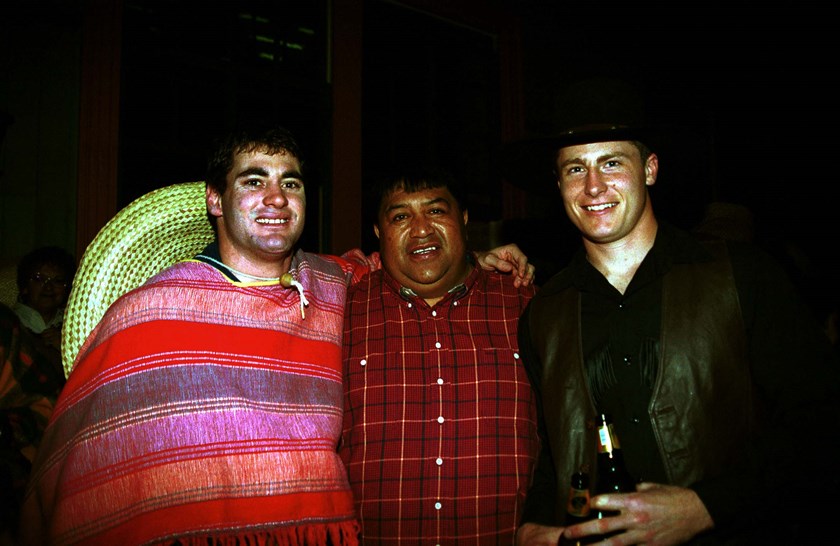
A Taniwharau club stalwart, his New Zealand Maori career highlights included the 10-all draw with Australia at Hastings in 1980 and captaining the team against France in his Huntly home town in 1981. He died at Huntly on May 15, aged 69.
Tom Searle
The captain-coach of Tweed Heads Seagulls in the 1970s, a Country representative and long-serving Gold Coast official. Searle guided Tweed Heads Seagulls to eight consecutive grand finals and four Group 18 titles.
He represented Country Firsts in 1972 and Country Seconds in 1973. The father of Gold Coast Titans founder Michael Searle, Tom was the Titans’ inaugural junior development manager in 2007. He died of brain cancer on June 22, aged 73.
Barry Cross
A referee and touch judge who devoted a lifetime to officiating at all levels. Initially a halfback at Wamoon in the Riverina in the early 1950s, Cross turned to refereeing in the Manly district in 1957. He controlled countless games at schoolboy and junior levels before joining the NSWRL Referees Association. He controlled eight NSWRL games as a referee but was touch judge in grand finals, interstate and international matches.
The father of first-grade players Greg Cross (Manly) and Peter Cross (North Sydney), he died in July, aged 87.
Bill Ramsey
A rugged English forward who toured Australia twice and played more than 400 games at club level in a career that lasted from 1962-77.
He toured Australia and New Zealand with Great Britain in 1966 and was sent off in a brutal second Test against Australia in Brisbane. In 1974 he made history as one of two replacement players (along with Maurice Richards) sent to Australia as reinforcements when injuries left the tourists short. He died on July 6, aged 76.
Peter Burnicle
A second-rower in 46 games for Western Suburbs (1963-68) including a single appearance in first grade in 1965. He died on July 20, aged 76.
Don Regan
A second-rower for Parramatta in 73 first-grade games from 1949-53. Regan played President’s Cup for the Eels in 1947-48 before earning a call-up to first grade under famous coach Vic Hey. Regan died on July 29, aged 90.
Warren Kimberley
A stalwart administrator on the NSW mid-North Coast and former president of the Country Rugby League. His long association with the game began as a 15-year-old player with Wauchope in 1954. He went on to play 160 games with the senior club before turning to administration.
He was appointed CRL president in 2000 and served nine years in the role. He died on July 31, aged 81.
Bal Numapo
Celebrated as an all-time great in Papua New Guinea, he was a Rest of the World representative in 1988 and lower-grade player with the Canterbury Bulldogs in 1989.
Numapo was a gifted centre who made his Test debut for the Kumuls against the touring Great Britain team of 1984. He played 14 Tests for PNG, including eight as captain and led the history-making tour to Great Britain and France in 1987.
He represented Rest of the World against Great Britain at Leeds in 1988 before a short stint with the Bulldogs in 1989. He died at Kundiawa after suffering a stroke on August 1, aged 57.
Ross Warner
A hooker for North Sydney in 186 first grade games from 1963-74. From Tamworth, he represented Northern Division against the touring Great Britain side of 1962 before heading for Sydney.
Warner represented NSW five times and was unlucky not to play for Australia after being selected as a reserve for the third Test against France in 1964.
He was named hooker in the Bears' Team of the Century. He passed away on August 1, aged 82.
Col Weir
A talented centre for Wests Brisbane, who rose to the brink of Test honours in 1960 when he was chosen as a reserve for the first Test against France.
A Wests Ithaca junior, Weir played 16 Bulimba Cup games for Brisbane (1957-64) before playing the first of seven games for Queensland in 1959.
He was a mainstay for Wests, captaining the club in 1964-65 but a premiership title proved elusive. Weir died on August 1, aged 84 after a short battle with cancer.
Kevin Hogan
A skilful five-eighth in 63 first-grade games, 49 for Cronulla (1969-73) and 14 for Parramatta (1974) before embarking on a successful career as a junior and lower grade coach.
He enjoyed his finest season in 1971 when he finished second in the Rothmans Medal count to Souths five-eighth Denis Pittard (by one point) and shared the Sydney Morning Herald player of the year award with Pittard the same year. Hogan died on August 3, aged 75.
Clarrie Jeffreys
A hooker for Balmain and Newtown in 117 first-grade games (1953-68) before coaching Newtown at lower-grade and first-grade level.
Jeffreys played 23 top-grade games for Balmain (1953-55) before appearing in 94 games for Newtown (1957-68). His tally of 242 grade games for the Bluebags is second only to Frank "Bumper" Farrell’s 250.
He took charge of Newtown’s first grade side in 1974 and held the reins for three seasons. He died on August 27, aged 88.
Jack Danzey
A centre or five-eighth for Newtown (1960), Balmain (1962-65) and Cronulla (1967-68), who played 62 first-grade games before becoming a high-ranking NSWRL referee.
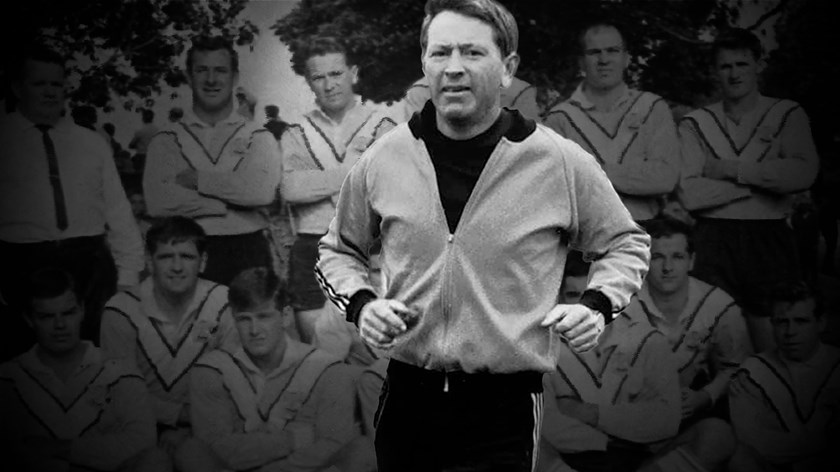
Danzey played five-eighth for Balmain in the 1964 grand final and in Cronulla’s inaugural premiership match in 1967 (an 11-5 win over Eastern Suburbs).
He officiated in 170 first-grade games, was in charge of two interstate games (1978 and 1980) and controlled the 1978 Amco Cup final between Eastern Suburbs and St George. He died on August 31, aged 81.
Laurie Fagan
A halfback who played 177 first-grade games for Balmain (1959-66) and Penrith (1967-70) in a 12-year career in the top grade. In 1962 he represented NSW in one interstate game, played for the state against the touring Great Britain team and was named winner of the Sydney Morning Herald player of the year award.
He played in Penrith’s inaugural first grade game in 1967 (scoring two tries in a 15-12 loss to Canterbury) and was named the club’s player of the year in 1970. Fagan died on September 28, aged 79.
Joel Dark
The 19-year-old cousin of NSW and Australian captain Boyd Cordner, he died in John Hunter Hospital on September 11, five days after suffering a head injury playing for Central Newcastle against Western Suburbs at Charlestown. Dark was making his first-grade debut.
John Fahey
A lower-grade player for Canterbury who became NSW Premier and played a major role in securing the Olympic Games for Sydney in 2000. Fahey played as a winger, centre or five-eighth in 37 reserve-grade and third-grade games for Canterbury in 1965-66 before taking on captain-coach duties with Camden and Oakdale in Group Six.
He became a member of parliament in 1984 and served as NSW Liberal Premier from 1992-95. Fahey was inaugural patron of the Men of League organisation, and later a director; sat on the NRL Centenary Committee and was patron of the Bulldogs from 1993 until his death on September 12, aged 75.
Peter Newell
An administrator, who played a key role in the establishment of the St George Illawarra joint venture before the 1999 season. Newell was a former journalist, editor and general manager of the Illawarra Mercury (1970-2000) and joined the board of the Illawarra Steelers in 1989, serving as chairman from 1999-2019.
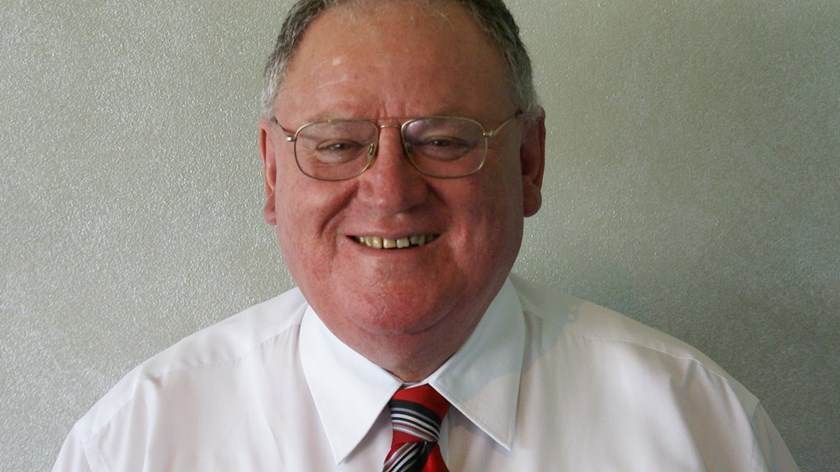
He was awarded an Order of Australia Medal in 2003 for his role in engineering the joint venture and also for his services to the Illawarra community. He died on September 28, aged 71.
John Whittaker
A gifted utility back and a star of New Zealand’s 1971 Grand Slam year (two tries as a winger against Australia at Auckland and a brilliant fullback in six Tests in Britain and France), when all three series were won.
Debuted at the 1970 World Cup and recovered from a serious car crash in 1973 to extend his international career through to 1982. Played 26 Tests (10 at fullback, seven at wing, six at centre, three off the bench) and 43 other games for the Kiwis including four world tournaments.
The first Cook Islander to play for the Kiwis, he proudly represented his homeland in 1986 when aged 36. He died on September 29, aged 70.
Ernie Hills
An All Black triallist, Wallabies winger and prolific tryscorer in two seasons with Western Suburbs in 1956-57. Born in Auckland, Hills represented the Wallabies in two Tests against the British Isles and spent three years serving in the New Zealand Army in Korea. Hills joined Western Suburbs in 1956 and scored 19 tries in 29 games for the Magpies. He died in October, aged 90.
Bill 'Mad Dog' Wilson
A hooker and prop for Western Suburbs in 43 games 1964-67, of which two were in first grade. Wilson was a Balmain junior; he made his first grade debut against Newtown late in the 1965 season and played his second and last game in 1966. He died in October, aged 82.
Ray Blacklock
A winger for Penrith, Newtown and Canberra, who scored 34 tries in 93 first-grade games and played in Newtown’s 1981 grand final team.
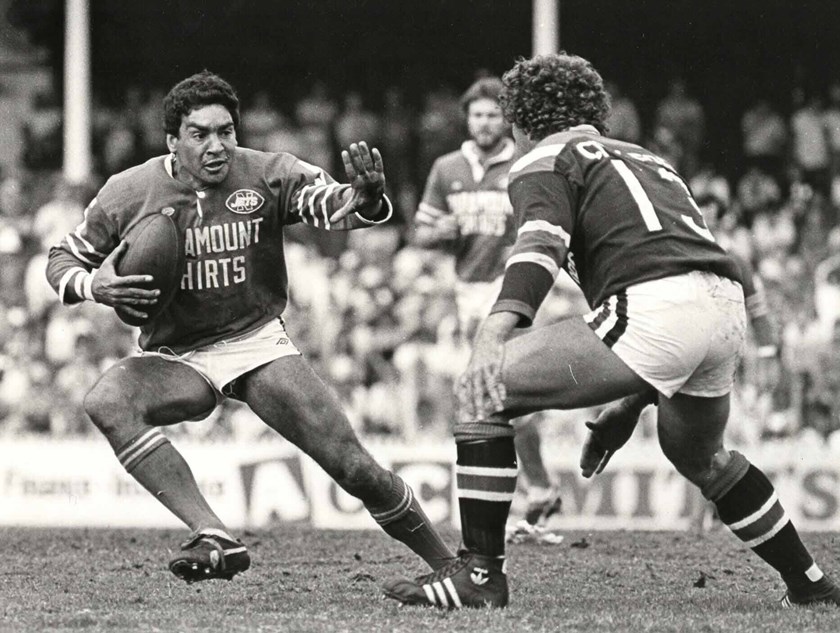
Blacklock captained Penrith to victory in the 1978 under 23s grand final over Western Suburbs. It was the Panthers’ first premiership title in any grade. Blacklock forged a strong partnership with fellow Indigenous winger John Ferguson at Newtown (1981-82) before playing out his career in two seasons with Canberra (1983-84).
He died of a rare neurological disorder, Multi System Atrophy, on October 28, aged 65.
Mick Fitzsimmons
A second-rower who made a single appearance in first grade for Eastern Suburbs in 1983. The Bondi United junior came off the bench in a big win over St George at Kogarah. Fitzsimmons later spent several years with the Roosters as junior representative coach. He died in late October, aged 58.
Wal Hourn
A winger who played nine games for South Sydney in 1962, including three in first grade. A Lismore junior, Hourn made his top grade debut against Eastern Suburbs early in the season and later scored two tries against Canterbury. He died at Hervey Bay in November, aged 79.
Warren Simmons
A centre for Manly in 37 first-grade games in the 1950s, including the Sea Eagles’ first grand final team of 1951. Simmons died at Thornton on November 9, aged 90.
Greg Growden
Best known as a rugby union writer for the Sydney Morning Herald and the author of several books but he also covered rugby league, among other sports, for the Herald from the late 1970s to the mid-1980s.
Highly respected, Growden died on November 14, aged 60, after battling cancer.
Jim Schroder
A prop who played 32 first-grade games for North Sydney in a club career that spanned a decade (1961-70). A Temora junior, Schroder made his top grade debut in Norths’ final game of 1962 but waited almost five years to make his second appearance. He died at Tumut on November 22, aged 79.
Ray Cupic
A hooker for Eastern Suburbs, who played a single game in first grade in 1975. His one appearance may have been fleeting however there was significant history attached to it. Cupic was called on as a replacement by coach Jack Gibson in a late season game against Canterbury as the Roosters were building towards a premiership record 19 consecutive wins. He died in late November.
Keith Titmuss
A 20-year-old Manly front-rower, he had been named in the Sea Eagles’ top 30 squad for 2021. Titmuss fell ill after a training session at Narrabeen on November 23 and despite being rushed to Northern Beaches Hospital and then Royal North Shore, he could not be saved.
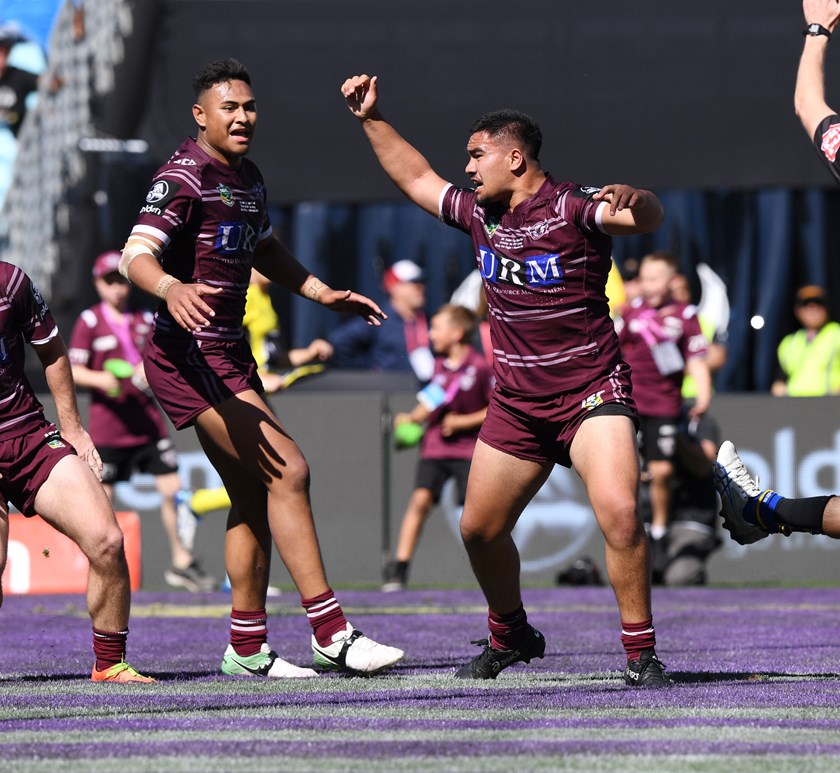
As a 17-year-old, Titmuss scored the match-winning try for Manly in the 2017 Holden Cup grand final. The club honoured the Cabramatta junior by awarding him a heritage number (623), recognising that he was poised to make his NRL debut in 2021.
Jack Stewart
A centre in 36 games for Canterbury in the 1940s (six in first grade) and later a long-serving administrator with the Cronulla Sharks.
Stewart was one of three brothers who made significant contributions to Canterbury; brothers Kevin and Frank being Life Members of the football club and having the grandstand at Belmore Sports Ground named in their honour.
He was chairman of Cronulla Leagues Club from 1972-91 and became chairman of both leagues and football clubs when the boards merged in 1988. Stewart died on November 28, aged 99.
Mick Falla
A five-eighth for South Sydney in 63 games from 1961-66, who became a selector of metropolitan, state and national teams over a 25-year period. Falla played over half of his 122 games in the top grade.
He served as metropolitan selector from 1976-2000, NSW selector 1979-2000 and was a member of Australian selection panels in 1982-83 and 1993-96. He died on November 29, aged 83.
Notable deaths late in 2019
Neil Ryan
A winger who played two first-grade games for South Sydney (1957 and 1959) before transferring to Eastern Suburbs and playing a further top grade game in 1960. He died in December 2019, aged 81.
Tom Cocking
A forward who played 76 games for South Sydney, including 13 first-grade games (1959-62). A life member of the club, Cocking died on December 16, 2019, aged 82.
Doug Ricketson
A centre for Eastern Suburbs and Penrith in 63 first-grade games (1960-67). A Bondi United junior, Ricketson played in a grand final in his first season of first grade (a 31-6 loss to St George) and represented City Seconds and Sydney (v Great Britain) in 1962.
He moved to Penrith in 1966, playing in the club’s Second Division-winning team before playing three first grade games in the Panthers’ first season in the NSWRL.
The father of Roosters’ stalwart and former Test forward Luke Ricketson, he died on December 18, 2019, aged 79.
Frank Foster
A second-rower in 381 games for Workington Town, Hull KR, Bradford, Barrow and Oldham and in one Test for Great Britain (against Australia in 1967). He died on December 20, 2019, aged 79.


